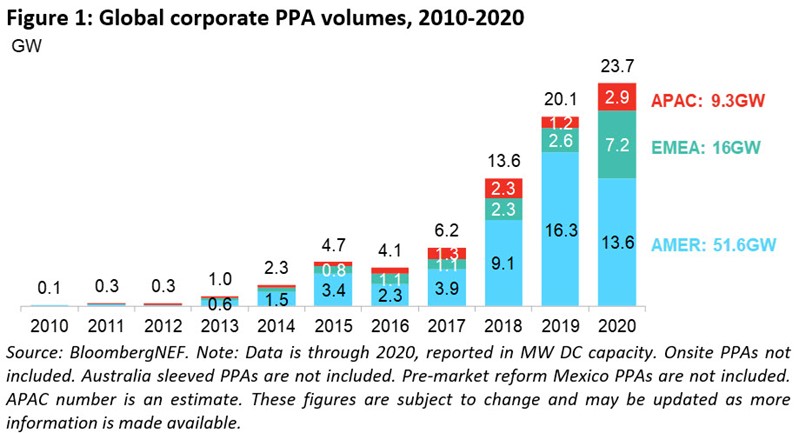In recent years, many companies with large energy consumption have pledged to reduce their Scope 2 GHG emissions through the sourcing of renewable energy.
Larger companies with sufficient purchasing power are increasingly using renewable energy purchase agreements (REPAs) to secure cheaper and more reliable access to renewables in the long-term.

These long-term commitments can be considered a type of corporate investment in a decarbonized energy system—they provide critical support to renewable energy projects by ensuring a stable revenue stream for energy producers, easing access to the project’s finance.
From an accounting standpoint, depending on their structure and the level of the off-taker’s involvement, REPAs can be classified as:
- leases
- financial instruments / derivatives
- project equity / variable interest entity (VIE)
- assets / liabilities



